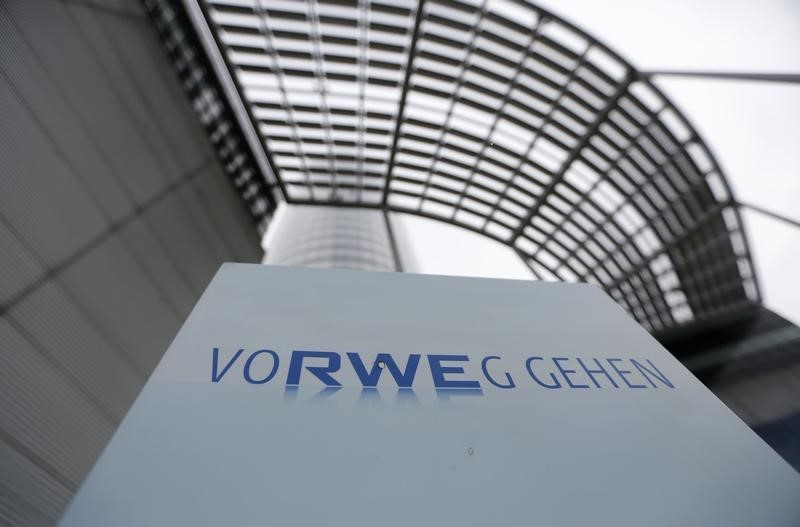* Networks, renewables will attract investors -sources
* RWE has held talks with Macquarie -source
* RWE cap hike seen worth more than 2 bln eur -analysts
By Christoph Steitz and Tom Käckenhoff
FRANKFURT/DUESSELDORF, Dec 2 (Reuters) - RWE RWEG.DE boss Peter Terium may have waited a year to follow larger rival E.ON EONGn.DE in splitting up the company, but shareholders agree it was well worth it as the new group offers just what investors want - regulated assets and renewables.
Germany's No. 2 utility cheered markets on Tuesday by saying it would pool its power and gas grids, retail unit and renewable activities into a new entity and list 10 percent of it in late 2016.
By "IPOing the caviar", as HSBC analysts have put it, RWE is expected to attract infrastructure funds, insurers and maybe even investors from the Gulf, ending years of crisis that have earned it the label "uninvestable" in the financial industry.
"The value of waiting has paid off for RWE," Martijn Olthof, senior portfolio manager at Dutch asset manager APG, who owns shares in both RWE and E.ON. "For those that are looking for pure exposure to renewables, networks and retail, this is the much better structure. You don't get that at E.ON."
Even though the listing is still a year away, RWE has already held talks with Macquarie MQG.AX about a possible sale of further stakes in the new company, a source familiar with the matter told Reuters.
The Australian investor has emerged as one of the most active players in European energy infrastructure through deals such as the 3.2 billion euro ($3.4 billion) purchase of E.ON's gas grid Open Grid Europe in 2012. This year, it acquired stakes in two German offshore wind power projects.
"With the new unit, RWE is presenting a clean business that investors are prepared to invest in," said Marc Tuengler of DSW, a lobby group that represents RWE's private shareholders.
Banking sources have also pointed to insurers, including Allianz ALVG.DE , as being possibly interested, keen to put their money into regulated and stable assets in light of ultra-low interest rates. Some believe the move could even rekindle stalled talks with a Gulf-based investor.
Macquarie and Allianz both declined to comment.
The partial listing, which will happen via an estimated 2 billion euro capital increase, could provide RWE with badly needed cash for future investments, a view shared by RWE's powerful municipal shareholders, which hold about 24 percent.
"But you cannot solve all the problems by splitting in two," they said in a written response to questions.
Peer E.ON was dealt a blow in September when it had to backtrack on a similar plan and take back nuclear power plants along with the liabilities to shut them down, allaying fears it was planning to escape responsibility for bearing the costs.
That won't be a problem for RWE, which will keep liabilities from the beginning, making its proposed spin-off look more attractive compared to E.ON's Uniper, which will consist of its ailing power plants, energy trading as well as oil and gas activities.
"They're doing the good bank as opposed to E.ON's bad bank," a person familiar with the matter said of RWE's plans.
"It's a very clever move." ($1 = 0.9436 euros)
